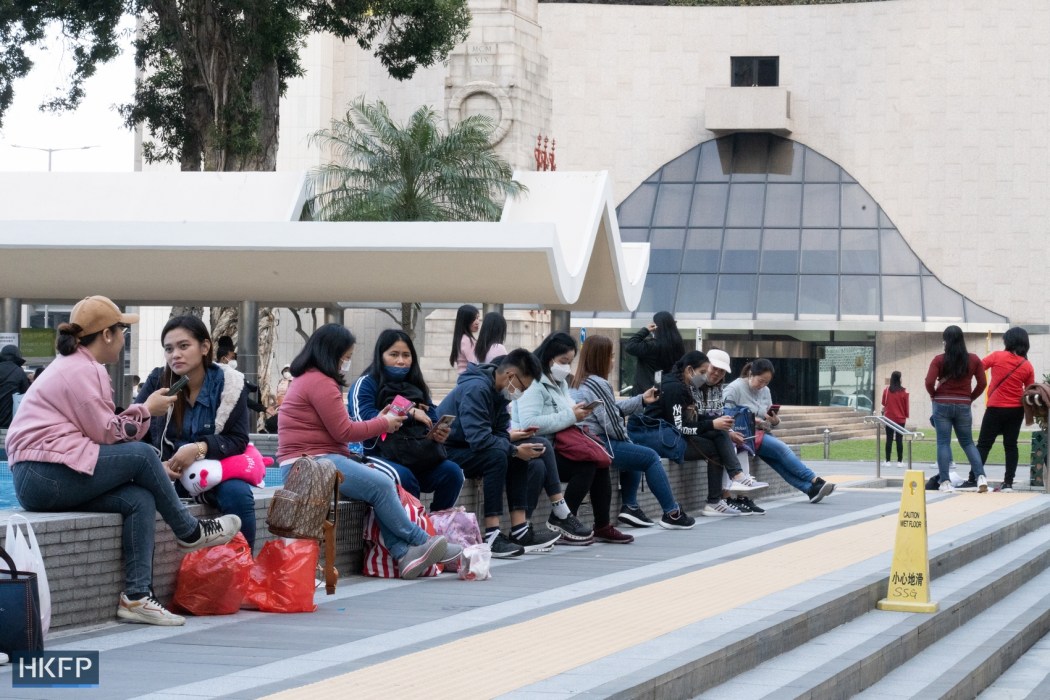Hong Kong employers should not be required to pay thousands of dollars more to hire Indonesian domestic workers, the city’s labour minister has said as he vowed to meet with the Indonesian consul general to express concern over the controversial fee rise.

Employers in Hong Kong should not bear the cost of any policy change relating to hiring domestic workers from Indonesia, Secretary for Labour and Welfare Chris Sun said last Friday, after Jakarta unveiled revised rules to shift the recruitment cost entirely to employers.
Indonesia’s fee policy was last amended last year, but has yet to be enforced. The most recent changes scrapped the need for domestic workers to pay a placement fee, requiring workers instead to just cover the cost of undergoing training.
Under the new rules, employers in Hong Kong must cover the full recruitment fee of around HK$4,000 to HK$5,000, with charges varying among different Indonesian recruitment agencies.
Indonesian recruitment association Aspataki estimated last Wednesday that the new fees would raise the total cost of hiring an Indonesian domestic worker to around HK$20,000.
Prior to the policy change, employers in Hong Kong were required to pay for medical examinations, round-trip flight tickets, transportation to the airport and insurance. If employers do not comply with the revised rules, the Indonesian authorities could bar workers from going to Hong Kong, Aspataki chairman Saiful Mashud said.

Sun said last Friday that the Hong Kong government already contacted the Indonesia consulate in Hong Kong to express its stance on the fee increase. The policy change should not affect the opportunity for Indonesian domestic workers to seek jobs in Hong Kong, the minister said, adding any measure should not target Hong Kong.
“Any measure… should treat everyone equally. We will voice our stance very proactively and we have to defend the interests of Hong Kong,” he said in Cantonese.
Sun said he would schedule a meeting with the Indonesian envoy to reiterate the government’s stance. He added the Labour Department would meet with consulate representatives from Cambodia and Bangladesh to discuss the possibility of importing domestic workers from other places.
Hong Kong Employers of Domestic Helpers Association said on RTHK last Thursday that the government should discuss with the Indonesian authorities the problem of overcharging of recruitment fees by employment agencies. Hong Kong employers were not responsible for such an issue, said Betty Yung, chairwoman of the association.

Yung raised concerns that there was insufficient protection for Hong Kong employers, saying migrant workers could resign with a month’s notice after the employers paid an expensive recruitment fee.
Migrant domestic workers in Hong Kong are subject to stringent rules, and the government has recently sought to crack down on workers terminating their contract early to find another employer. Domestic worker advocates have called “job hopping” a “myth,” saying it was one of the last things a workers would do, as it came at “a big price,” including having to pay a large sum to employment agencies as well as facing a wait for a new work visa.
Yung added while some employers may turn to hiring domestic workers from other places, other countries may follow the example of Indonesia and raise recruitment costs.
JBMI, an organisation representing Indonesian Migrant Workers, said in a statement last Friday that the new rules did not address issue of overcharging of placement fee. The workers still faced an expensive departure fee, the group said.
“The zero agency fee rule is ideal on paper, but is impractical in reality,” the statement read.
Last month, the Hong Kong Federation of Asian Domestic Workers Unions (FADWU) found that Indonesian domestic workers were most likely to be overcharged by their agencies.
Support HKFP | Policies & Ethics | Error/typo? | Contact Us | Newsletter | Transparency & Annual Report | Apps
Help safeguard press freedom & keep HKFP free for all readers by supporting our team

LATEST FROM HKFP
HKFP has an impartial stance, transparent funding, and balanced coverage guided by an Ethics Code and Corrections Policy.
Support press freedom & help us surpass 1,000 monthly Patrons: 100% independent, governed by an ethics code & not-for-profit.










